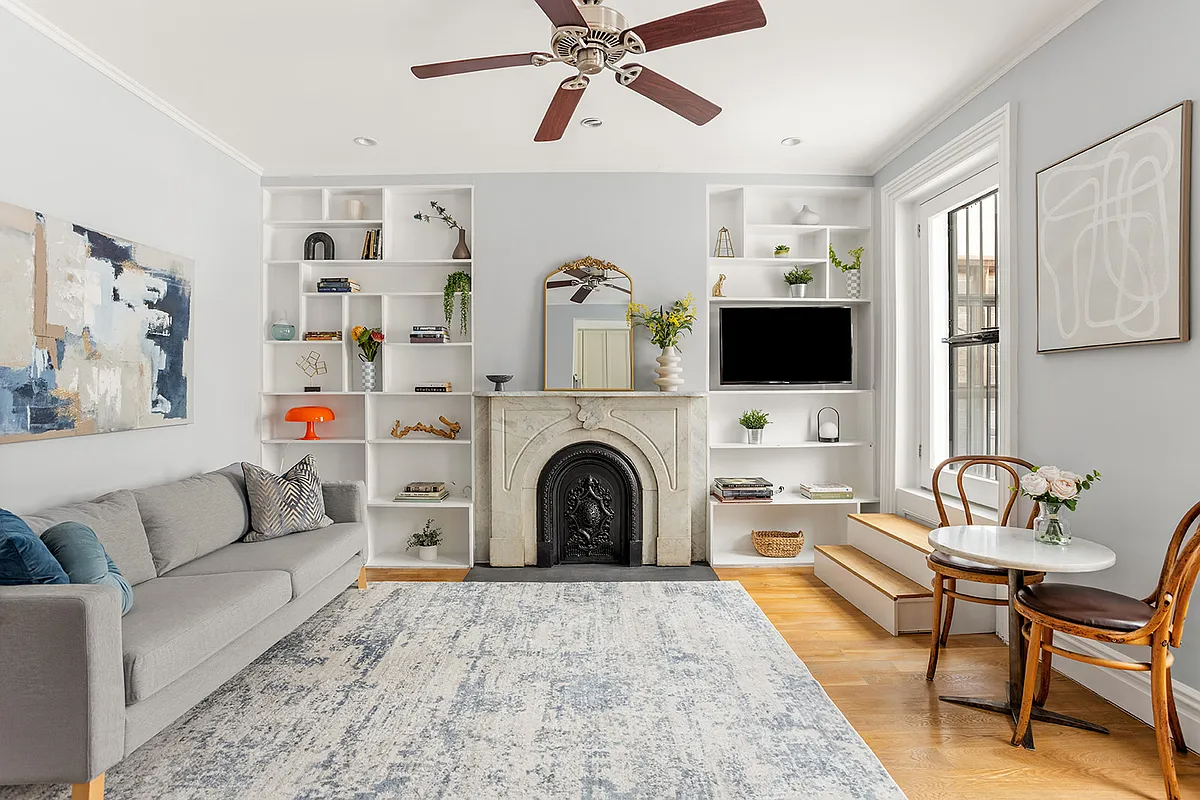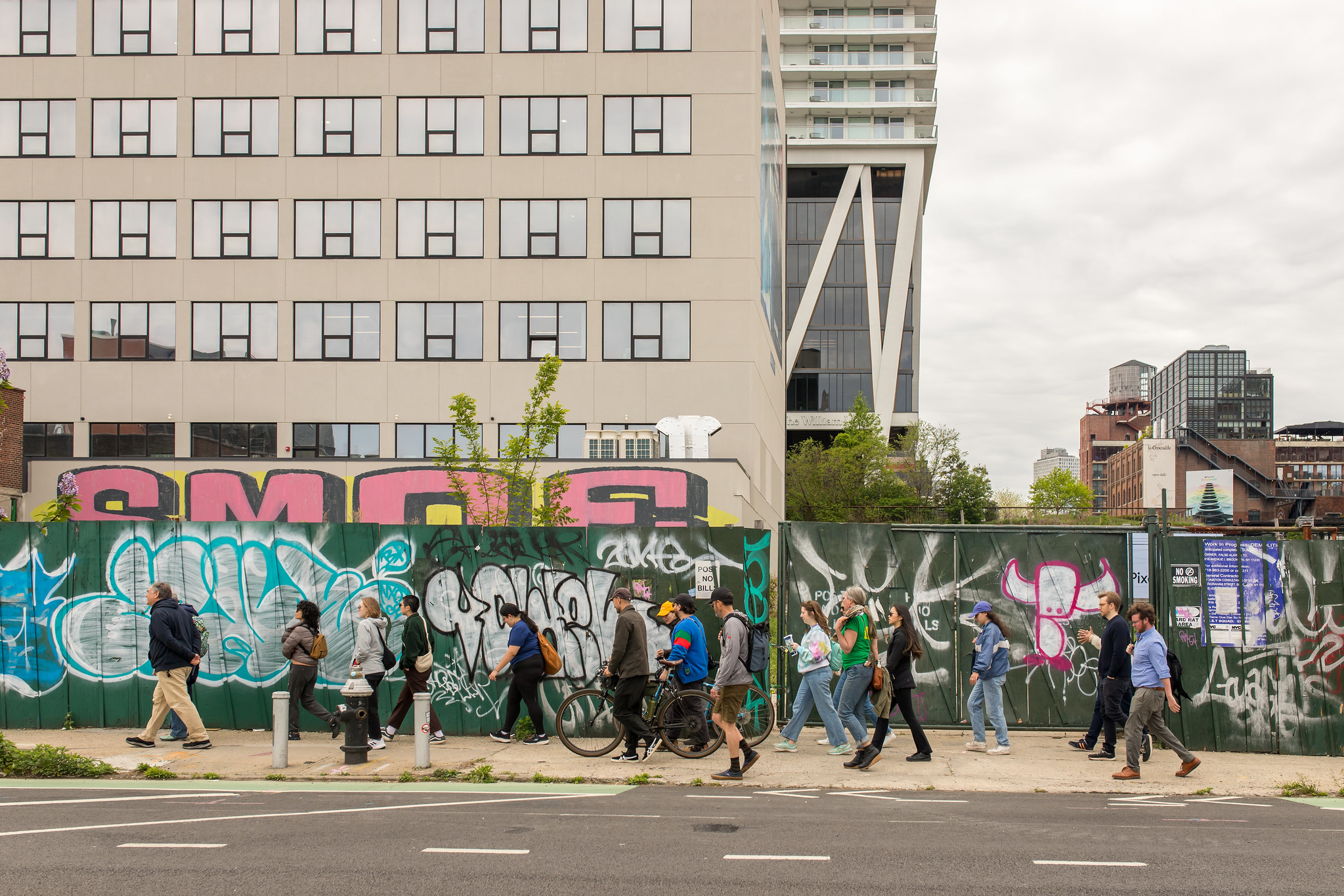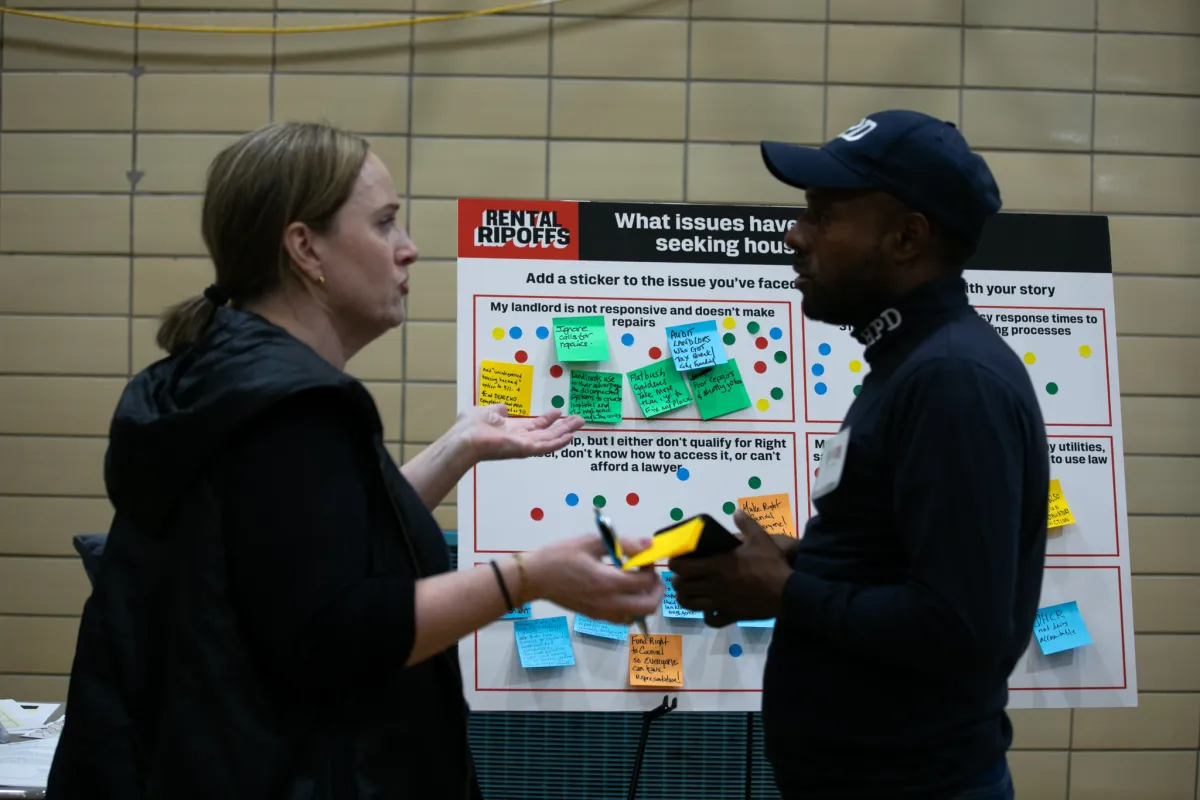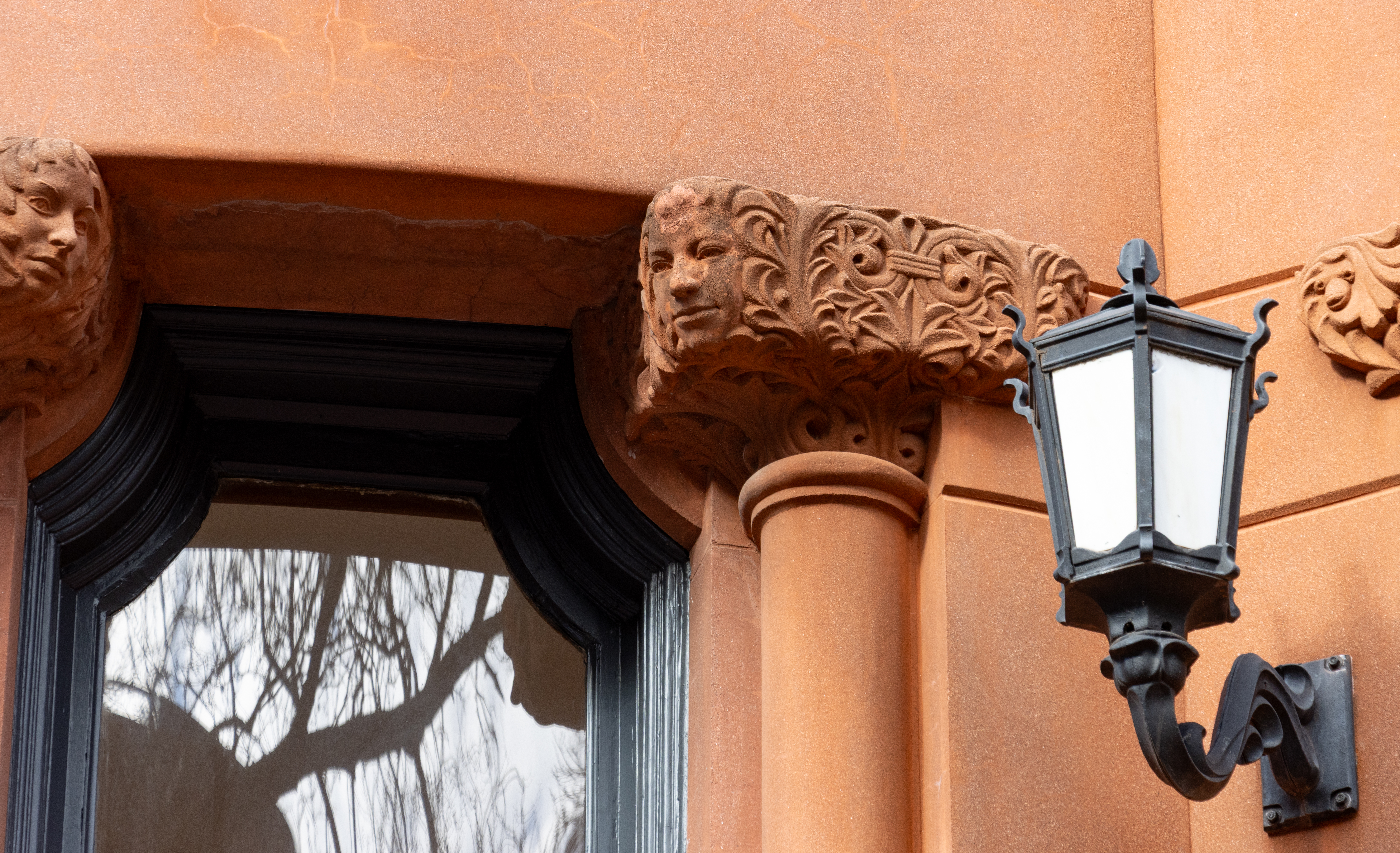The Shifting School Equation
There wasn’t room to discuss it yesterday, but we suspect the public/private school issue is on a number of people’s minds. Over the weekend, The Times ran an article about the number of people who bought their apartments in recent years with the assumption that they would send their kids to private school. Now that…

 There wasn’t room to discuss it yesterday, but we suspect the public/private school issue is on a number of people’s minds. Over the weekend, The Times ran an article about the number of people who bought their apartments in recent years with the assumption that they would send their kids to private school. Now that the economic downturn has made that a more difficult proposition, they are left to confront the limitations of their own school district. In some cases, parents are even considering renting a cheap apartment within a good school district just to get access—after all, it would be cheaper than the $30,000+ tuition in Manhattan. (It’s more like $25,000 here in Brooklyn.) Question for the renters and those in the market to buy in Brooklyn: Has the school issue shifted your real estate plans since the downturn began?
There wasn’t room to discuss it yesterday, but we suspect the public/private school issue is on a number of people’s minds. Over the weekend, The Times ran an article about the number of people who bought their apartments in recent years with the assumption that they would send their kids to private school. Now that the economic downturn has made that a more difficult proposition, they are left to confront the limitations of their own school district. In some cases, parents are even considering renting a cheap apartment within a good school district just to get access—after all, it would be cheaper than the $30,000+ tuition in Manhattan. (It’s more like $25,000 here in Brooklyn.) Question for the renters and those in the market to buy in Brooklyn: Has the school issue shifted your real estate plans since the downturn began?
The Sudden Charm of Public School [NY Times]
Photo by Steve and Sara





lechacal – I think we agree as to what matters most….but you have to admit it is easier (for the parent – and maybe the kid) to at least have a significant population of like-minded (educationally aspiring) parents and kids around to reinforce the lesson [not essential but helpful -no?]
And btw (just curious) what ‘best minds’ are you battling with on a daily basis (and why are you fighting with them)
rf “and the kids are raised by grandparents who haven’t left Chinatown since they got there.”
and so? you do not have to leave a ghetto to appreciate education and instill its importance on your children (or grandchildren).
rf- “But it’s really racist to think that you need a nonblack, nonhispanic majority to have a great school. You need a principal who knows how to rally the faculty and the parents and the kids.”
Who thinks or said that?
– and parents and kids in “better schools” generally do not need “rally[ing]”
fsrw: go back to my first post – have two kids, might have three by dinnertime. Yes, what you learn during those years is very important, but it is what you learn from your parents that matters the most. “Academics” barely matter in comparison. Take it from a kid who went to some of the worst public schools in rural New England, dropped out of high school at 16 and now goes toe-to-toe on a daily basis with some of the best minds of his generation.
bkny, now see that that group of 100 white parents. That is probably the most cutthroat and ruthless group of people you will ever met. Every year its another 100 parents.
I just wish they organize themselves in the pursuit of Good. And not pursue the every parent for themselves, “ends justify the means” mentality that seems ever so prevalent.
As long as loopholes exist, these folks will find it and keep it to themselves until it is of no use to anyone else. The quicker these loopholes get closed the sooner we can go about repairing our schools.
Despite the stereotype about Chinese kids, most of the kids at 130 have parents who work in sweatshops or Chinese restaurants and the kids are raised by grandparents who haven’t left Chinatown since they got there. They listen to Mrs. Woo, the principal.
These kids are taught respect for authority (mostly) and that does help.
But it’s really racist to think that you need a nonblack, nonhispanic majority to have a great school. You need a principal who knows how to rally the faculty and the parents and the kids. That may be a different person in Clinton Hill or Bed Stuy than in Chinatown, but whoever it is, it is a leader who knows what a good education looks like, has a genuine affection for the kids in the building, and is willing to work very, very hard. Part of the problem with raising up a school in a mostly-black or mostly-Latino neighborhood is that the parents went to shitty schools too and they don’t necessarily know what makes a good school. A good principal will help with that.
My daughter attended Shuang Wen (the dual-language Mandarin-English school in District 1) for pre-k. I moved her to PS130 in central Chinatown because I thought the principal was stronger, and because I liked the district (2 versus 1) better.
Shuang Wen has a much wealthier, well-educated group of families than do the good Chinatown elementary schools (PS1, PS2, PS124, PS130).
PS126, which abuts the Lower-East-Side projects at the river end of Catherine St., has a huge number of project kids and a lot of recent immigrant (very poor, illegal, from Fujian Province) kids from China. It’s another great school with a very strong principal. (I am familiar with this school because my daughter goes to the affiliated middle school.)
To the person who said middle school has better choices because kids can travel by themselves: just because the kids can travel does not mean that your kid can get in. There are many more seats in good elementary schools and good high schools than in good middle schools across the city. This is a particular problem in District 13.
The hard thing about planning for school and kids is what I think many have already suggested here: that building a strong school environment requires involvement long before your children would start school if you want your kids to benefit (and not simply those who come after). That’s hard to do — it’s asking people who may not even be sure they want to have kids to invest significant time and energy in a school district five or more years before they’d use it. It’s probably the expectation we should have of ourselves as members of a community, but besides being a lot to ask of people, it seems like it could be organizationally problematic, too.
I think it’s fair to say that five years ago before I had kids, I had different ideas of what was important to have in a school. I’ve never worked in education or with kids, so my education about kids, and the various ways they can be, and how they learn, has come with spending time with my kids and their friends. I can imagine parents of actual kids who were attending a local school not being too excited about hearing what the kid-less, planning-for-the-future parents had to say about the best way to run a school. If all this is about is raising money for a school, that would be one thing, but I don’t think it’s only about raising money.
Finally, the most intersting and impressive (to me) school I’ve seen so far was a charter school (a public school) that’s gives preference to kids within a certain district — and the directors there said the reason they were able to do many of the things that I found so appealing was because they had flexiblity not available to regular public schools. This suggests that we’re asking people not only to become invested in their own public schools five or more years before they’d use them — perhaps in ways that could raise the hackles of those with kids already in those schools — but also to become advocates for changes to the educational system (at least prospective parents who like the same things I like in schools). Again, this may be what we should ask of members of a community, but it is asking a lot.
For my part, when I moved here many years ago, I thought a little about public school, but perhaps not as much as I should have. I was somewhat involved in the local school, but again not perhaps as much as I should have been. And now we’re probably going to have to move and my kids are aproaching school age, and I am thinking very much about school district — not as an alternative to private school, but now knowing my kids and knowing a little bit about what learning environments I think would be good for them, I have a better sense of what public schools I think would be a good fit for them and that will inform my family’s move.
I know I am spitting into the wind to ask people to speak about only what they have direct experience with, but I am SICK TO DEATH of childless people insisting that parents send their child to some random sucky public school to “improve†it. As a public school parent – and a very involved one at that – let me tell you that the sine qua non of any school success is the PRINCIPAL. A good principal’s efforts can be strengthened by an involved and committed parent body, but the best parents in the world cannot ameliorate the poisonous atmosphere that results from an uninvolved, pension-padding principal.
Montrose Morris, because you are usually a voice of reason, I feel particularly angry about your comments. The situation in NYC is not usually a choice among a spectrum of public schools, ranging from mediocre to “good.†Bad schools are BAD. My zoned public is filled with teachers who couldn’t land a decent job who SCREAM at their charges and spend a majority of each day getting squirmy, ill-fed and poorly rested children to stand in line. Academic curriculum is dominated by test training, and children scoring at grade level or above are ignored. Perhaps this is “good enough†for your children, but it’s not for most involved parents who can make a choice. It’s certainly not for me. If my zone school were my only option, I would home school or do what a lot of people will do: head for the suburbs and pay $25K in annual property taxes – a bargain for more than one child.
As for bedstuy11216’s comment about putting your kid into a promising school with an open administration, you bet that’s what parents do right now (not that you would know). That’s why Community Roots (D13), PS 8 (D15) and PS 10 (D15) are so hot. They are exactly that type of school. Your list of how to improve a school is really laughable and shows zero connection to the real world of NYC public schools.
Lechacal, I’m glad things worked out for you, but it doesn’t for most people in your situation. Pardon me for wanting a better and more straightforward path for my children, if not one strewn with roses.
To Mr. B’s original question: Some people definitely bought in poor school districts or zones assuming they could use the house price savings for private tuition. Now that this notion is, at the very least, up in the air, certain areas will suffer. Anything in District 13 (excepting the area with the good zone school) and parts of Boerum Hill (PSs 38 and 32) will definitely experience a decline in property values. I’m not as familiar with Park Slope, but any area with a poor zone school should see a bigger price discount as well.
newyawker – you are right to a certain extent but i grew up in nyc, went to public school. elementary near my house, commuted 30 mins to middle school and then commuted to high school. it was a great experience learning different neighborhoods, meeting new people and feeling very independent. not like in the burbs where your elementary, middle and high school are all across the street from each other and you are going to school with the same kids for 12 years.
sorry lechacal you can mock all you want – this is not a question necessarily of how much does a 1st grader “know” – its a question of how well a 1st grade can learn.
I dont know if you have children or have ever worked with them but trust me what kids “learn” (most not in school) from 0-9 MATTERS allot.